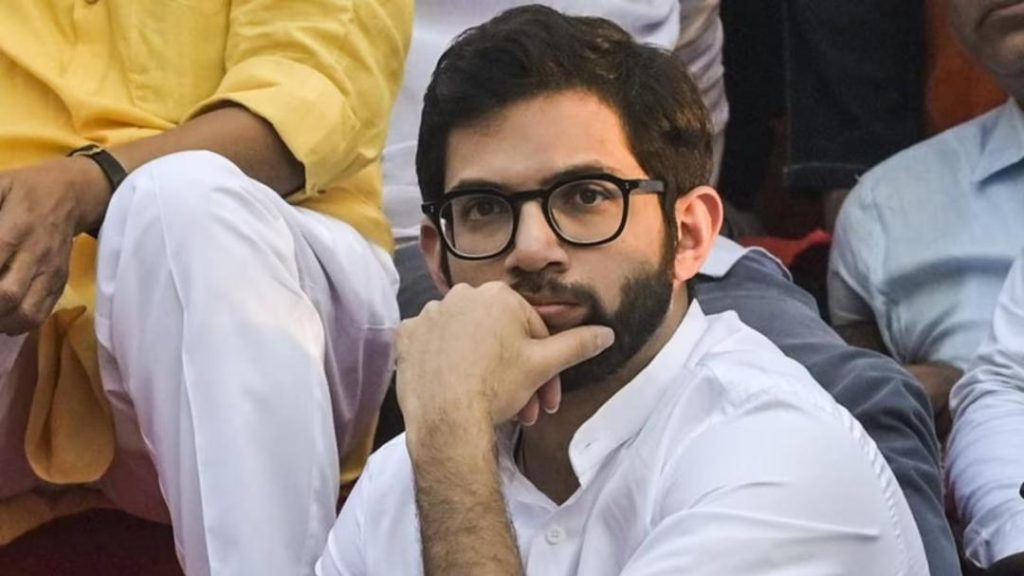
PM Modi visiting China after telling us to boycott them: Aaditya
India’s foreign policy has always been a subject of intense scrutiny and debate. The recent to-and-fro ties with Pakistan, China, and America have left many questions unanswered. In the latest development, Prime Minister Narendra Modi is expected to visit China, a move that has sparked controversy among many. Shiv Sena (UBT) leader Aaditya Thackeray has come down heavily on the government’s foreign policy, stating that it is contradictory and confusing.
Thackeray took to social media to express his displeasure over the government’s stance on China. “They told us to boycott China and Chinese goods…that they are showing laal aankh (the glare of anger) to China. Now the official visit!” he tweeted. His remarks come in the wake of PM Modi’s expected visit to China, which has raised eyebrows among many.
For years, the Indian government has been advocating for a boycott of Chinese goods and services. The move was seen as a response to China’s aggressive posture in the region, particularly in the wake of the Galwan Valley clashes in 2020. The government’s campaign against Chinese goods was also aimed at boosting domestic industries and creating jobs.
However, the sudden change in stance has left many puzzled. Why is the government sending PM Modi to China on an official visit when it was earlier advocating for a boycott of Chinese goods and services? Thackeray’s remarks highlight the apparent contradiction in the government’s foreign policy.
Thackeray also took aim at the US, criticizing its 50% tariffs on Indian goods. He tweeted, “The US is imposing 50% tariffs on our goods, and we are giving them a red carpet welcome. What is our foreign policy?” His remarks are a reflection of the growing concerns among many about India’s ties with the US.
India’s relationship with the US has been a key aspect of its foreign policy in recent years. The two countries have been working together on several issues, including defense and trade. However, the recent tariffs imposed by the US on Indian goods have created tension between the two nations.
Thackeray’s criticism of the government’s foreign policy is not without merit. The sudden change in stance on China, coupled with the tariffs imposed by the US, has left many questioning the government’s priorities. The expectation is that the government should have a clear and consistent foreign policy, rather than sending mixed signals.
The government’s response to Thackeray’s remarks has been muted, with officials saying that the Prime Minister’s visit to China is aimed at strengthening bilateral ties and promoting economic cooperation. However, the timing of the visit has raised many questions.
In recent years, India has been trying to balance its ties with China and the US. The government has been working to strengthen economic ties with China, while also trying to improve its relationship with the US. However, the apparent contradiction in the government’s foreign policy has created confusion and unease among many.
Aaditya Thackeray’s remarks have highlighted the need for a clear and consistent foreign policy. The government cannot keep sending mixed signals to the international community. It is time for India to take a stand and articulate its priorities clearly.
As the Prime Minister prepares to visit China, it is essential to remember that India’s foreign policy should be guided by its national interests and values. The government should avoid sending mixed signals and maintain a consistent approach in its dealings with other nations.
In conclusion, Aaditya Thackeray’s remarks have sparked a much-needed debate on India’s foreign policy. The government’s sudden change in stance on China and the tariffs imposed by the US have created confusion and unease among many. It is time for India to take a stand and articulate its priorities clearly. The country’s foreign policy should be guided by its national interests and values, and not by expedient considerations.
Source: https://x.com/AUThackeray/status/1953338652861280716






